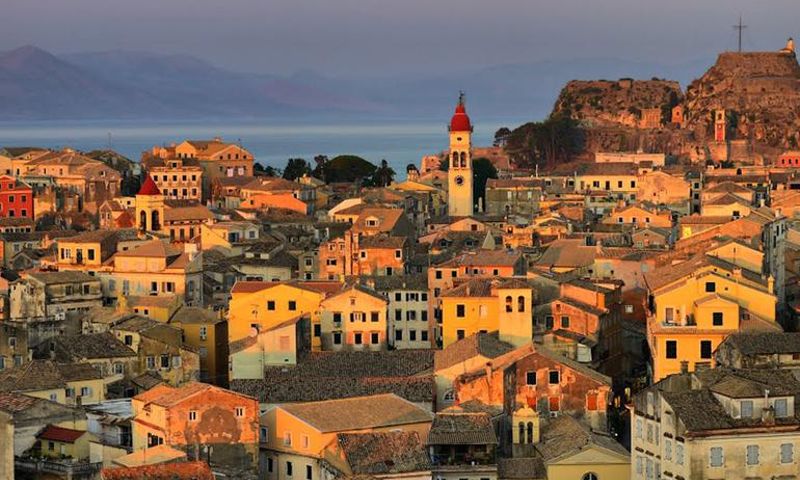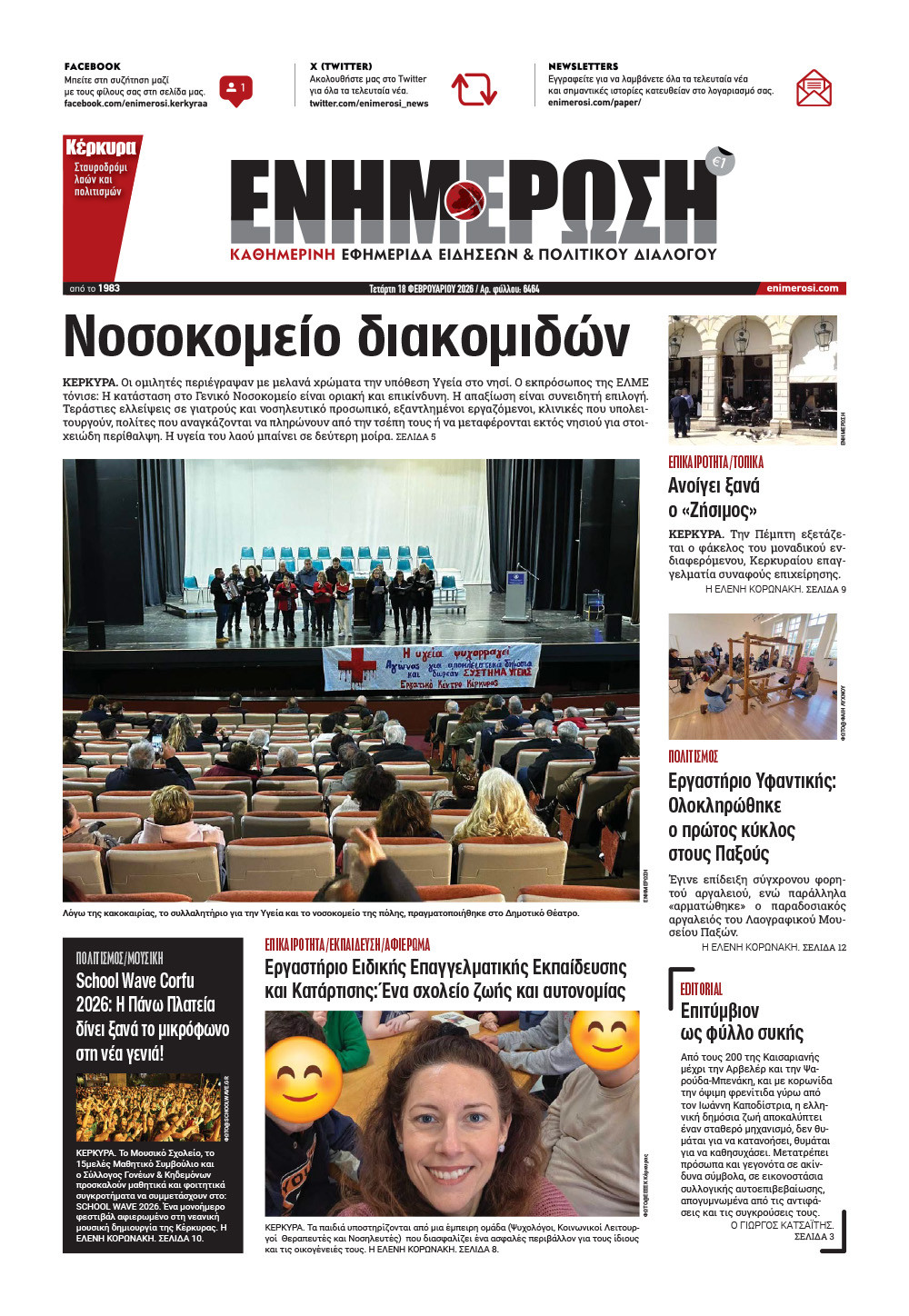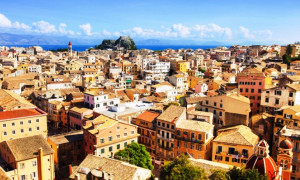BBC: "On Greek islands locals have nowhere to live because of Airbnb"

BBC
05 Sep 2019
/ 14:23
UK. A BBC article talks about the negative effects of Airbnb on the residents of Greek islands who "have nowhere to live".
A BBC article talks about the negative effects of Airbnb on the residents of Greek islands who "have nowhere to live".
According to the article, the places where Greek locals can call home are changing - and, in some cases, disappearing - as short-term holiday rentals cannibalise long-term housing arrangements.

The article says, "Colette Nolan fell in love with the island of Paros 28 years ago when she moved there from the UK with her Greek now-ex-husband. “All my grandchildren were born and raised here,” the 60-year-old says. “I love being by the sea and the laidback lifestyle.”
But Nolan’s time on the picturesque Cycladic island – famed for its blue-and-white painted houses – may be about to come to an end. Her landlord and landlady are asking her to leave the apartment she has lived in for five years so they can rent part of the property on Airbnb.
On Paros more and more property owners are turning to Airbnb due to the increase in tourism.
“They’re an elderly couple and they stay in the apartment above me for a month or two each summer,” she explains. “They told me they want my apartment back because they are struggling with the stairs. But when I suggested I move upstairs instead, they said their son wants to turn it into an Airbnb.”

Two-bed apartments average about 80 Euros a night with Airbnb
Two-bed apartments like Nolan’s in her area of Paros average about 80 euros a night, versus Nolan’s 100-euro per month rent. That makes earning potential for landlords much higher, especially throughout the high season of June, July and August. This income disparity is one of the reasons that, although Nolan’s contract doesn’t end until next April, they are taking her to court to force her out earlier.
She is struggling to find a new home. Nelson lives across the road from her daughter, Katerina Bamboulis, and sees her every day. However, if she can no longer afford the cost of living, she says she may need to return to the UK.
"There isn’t anywhere for them to go"
The economic crisis led to short-term rentals
The article says that Greece, in general, has a home ownership rate of 74% – one of the highest in Europe. It is common for middle class families to own several properties, some of which they save for their children and rent out in the meantime. However, following Greece’s debt crisis, during which its economy shrank by 26%, many landlords have taken properties off the long-term rental market in the hope they will make more money from short-term lets.
For many families whose household incomes were battered during the crisis, the ability to take advantage of Greece’s tourism industry and make some extra money through rental sites has provided a lifeline. But for those likely to be living in rented accommodation – such as single or divorced people, students, seasonal workers or doctors and teachers in temporary postings – these platforms’ popularity is causing housing shortages and pushing rents up.
Rents have rocketed and students on the Greek islands have difficulty in finding cheap accommodation.
“It used to be easy to find a house on Paros,” says Nolan. “Now, it seems everyone’s looking. Most renters have been asked to leave because the owners want to Airbnb. But there isn’t anywhere for them to go.”
Nolan is used to paying her 100 euros a month rent, but the only comparable places now available for long-term rent are at least 300 euros a month. “When you add bills on top, it becomes a lot,” she says.
“And we don’t have a lot of money here. We work in the summer and then do whatever odd jobs we can in the winter … I work in a hotel, and in winter I teach a bit of English and do cleaning for people.”
Nolan’s daughter finds the situation complicated, as she manages holiday villas on the island for a living, several of which are rented online. With her expertise, Bamboulis explains the perspective of the landlords on these holiday islands.
“With Airbnb I can make 10,000 Euros in three months [of rental]. I pay 2,000 Euros tax, 2,000 Euros for cleaners and damages and am left with 6,000 Euros. If there’s a problem with the guests, Airbnb comes straight in and helps,” she says. In contrast, if she were to rent that same house as a long-term rental, she’d comparatively make 10,000 Euros a year, pay 3,000 in tax and 3,000 in damages – a total of 4,000 Euros net. “And if I have a tenant problem I can’t get them out. So, this is why a lot of people don’t want to do long-term rental."
Prices for two-bedroom apartments in Corfu have jumped from less than 200 Euros a month to 500 Euros or more.
Along with the lower taxes and maintenance costs that landlords receive for short-term holiday rentals, Bamboulis says that many landlords favour Airbnb over working independently, since the platform provides landlords more support than Greece’s own legal system.
Bamboulis understands that landlords have more earning potential in short-term rentals, but also believes that what is happening to her mother is unfair. “If the Greek state supported long-term rentals the way it does short-term, we wouldn’t have this problem.”
On the other side of the country, in Corfu, a similar situation is playing out. Corfu is larger than Paros – 102,000 people live here all year round – and the island also has a university. But the prevalence of short-term holiday rentals in the main town has led to students having to live in hotels, and local people struggling to find suitable housing.
Nikoletta Pandi, 30, says that she and her mother spent two years trying to find an apartment together before finally settling for a one-bed on the outskirts of Corfu Town. She sleeps in the bedroom and her mum has the living room.
“I was living in a village, but I wanted to be in Corfu Town for work,” she says. She found prices for two-bedroom apartments had jumped from less than 200 Euros a month five years ago to 500 Euros or more. “We pay 350 Euros, which is really cheap,” she says, adding that they found the apartment through a family friend, which is “the only way” for locals to find living arrangements now.
Huge accommodation problem in Chania
On other islands, anger at the situation is growing. George Tzimas, 28, an architectural student at the University of Crete in Chania, says that students feel discouraged from applying to the university because of the housing shortage. “People either have to pay very expensive rent or live in Airbnbs themselves,” he says.
Tzimas and other activists have been organising marches along Chania’s Old Venetian Harbour – a spot popular with tourists. “People who live on the island already know there’s a problem, so we want the visitors to see. We want them to know that we want to have our own lives here and it not just be a place for tourists.”
Source: BBC
According to the article, the places where Greek locals can call home are changing - and, in some cases, disappearing - as short-term holiday rentals cannibalise long-term housing arrangements.

The article says, "Colette Nolan fell in love with the island of Paros 28 years ago when she moved there from the UK with her Greek now-ex-husband. “All my grandchildren were born and raised here,” the 60-year-old says. “I love being by the sea and the laidback lifestyle.”
But Nolan’s time on the picturesque Cycladic island – famed for its blue-and-white painted houses – may be about to come to an end. Her landlord and landlady are asking her to leave the apartment she has lived in for five years so they can rent part of the property on Airbnb.
On Paros more and more property owners are turning to Airbnb due to the increase in tourism.
“They’re an elderly couple and they stay in the apartment above me for a month or two each summer,” she explains. “They told me they want my apartment back because they are struggling with the stairs. But when I suggested I move upstairs instead, they said their son wants to turn it into an Airbnb.”

Two-bed apartments average about 80 Euros a night with Airbnb
Two-bed apartments like Nolan’s in her area of Paros average about 80 euros a night, versus Nolan’s 100-euro per month rent. That makes earning potential for landlords much higher, especially throughout the high season of June, July and August. This income disparity is one of the reasons that, although Nolan’s contract doesn’t end until next April, they are taking her to court to force her out earlier.
She is struggling to find a new home. Nelson lives across the road from her daughter, Katerina Bamboulis, and sees her every day. However, if she can no longer afford the cost of living, she says she may need to return to the UK.
"There isn’t anywhere for them to go"
Short-term holiday rentals have caused housing shortages and rent increases in cities around the world. The impact has been significant in many small places such as the Greek islands, which are home to intimate local communities year round, but see huge crowds arrive in summer for holidays.
The island of Paros has a permanent population of just 13,000, but its visitor numbers have grown recently: between 2014 and 2017, the number of overnight stays increased from 332,418 to 421,418. According to data site Inside Airbnb, there are 2,435 listings on the island, 82.9% of which are entire homes or apartments.The economic crisis led to short-term rentals
The article says that Greece, in general, has a home ownership rate of 74% – one of the highest in Europe. It is common for middle class families to own several properties, some of which they save for their children and rent out in the meantime. However, following Greece’s debt crisis, during which its economy shrank by 26%, many landlords have taken properties off the long-term rental market in the hope they will make more money from short-term lets.
For many families whose household incomes were battered during the crisis, the ability to take advantage of Greece’s tourism industry and make some extra money through rental sites has provided a lifeline. But for those likely to be living in rented accommodation – such as single or divorced people, students, seasonal workers or doctors and teachers in temporary postings – these platforms’ popularity is causing housing shortages and pushing rents up.
Rents have rocketed and students on the Greek islands have difficulty in finding cheap accommodation.
“It used to be easy to find a house on Paros,” says Nolan. “Now, it seems everyone’s looking. Most renters have been asked to leave because the owners want to Airbnb. But there isn’t anywhere for them to go.”
Nolan is used to paying her 100 euros a month rent, but the only comparable places now available for long-term rent are at least 300 euros a month. “When you add bills on top, it becomes a lot,” she says.
“And we don’t have a lot of money here. We work in the summer and then do whatever odd jobs we can in the winter … I work in a hotel, and in winter I teach a bit of English and do cleaning for people.”
6,000 Euros profit for three months with Airbnb opposed to 4,000 Euros a year with long-term rental
Nolan’s daughter finds the situation complicated, as she manages holiday villas on the island for a living, several of which are rented online. With her expertise, Bamboulis explains the perspective of the landlords on these holiday islands.
“With Airbnb I can make 10,000 Euros in three months [of rental]. I pay 2,000 Euros tax, 2,000 Euros for cleaners and damages and am left with 6,000 Euros. If there’s a problem with the guests, Airbnb comes straight in and helps,” she says. In contrast, if she were to rent that same house as a long-term rental, she’d comparatively make 10,000 Euros a year, pay 3,000 in tax and 3,000 in damages – a total of 4,000 Euros net. “And if I have a tenant problem I can’t get them out. So, this is why a lot of people don’t want to do long-term rental."
Prices for two-bedroom apartments in Corfu have jumped from less than 200 Euros a month to 500 Euros or more.
Along with the lower taxes and maintenance costs that landlords receive for short-term holiday rentals, Bamboulis says that many landlords favour Airbnb over working independently, since the platform provides landlords more support than Greece’s own legal system.
Bamboulis understands that landlords have more earning potential in short-term rentals, but also believes that what is happening to her mother is unfair. “If the Greek state supported long-term rentals the way it does short-term, we wouldn’t have this problem.”
However, the Ministry for Tourism is trying to find solutions which can provide a 'happy medium' in the matter of high rents from short-term rentals.


There is a similar problem in Corfu where students live in hotels
On the other side of the country, in Corfu, a similar situation is playing out. Corfu is larger than Paros – 102,000 people live here all year round – and the island also has a university. But the prevalence of short-term holiday rentals in the main town has led to students having to live in hotels, and local people struggling to find suitable housing.
Nikoletta Pandi, 30, says that she and her mother spent two years trying to find an apartment together before finally settling for a one-bed on the outskirts of Corfu Town. She sleeps in the bedroom and her mum has the living room.
“I was living in a village, but I wanted to be in Corfu Town for work,” she says. She found prices for two-bedroom apartments had jumped from less than 200 Euros a month five years ago to 500 Euros or more. “We pay 350 Euros, which is really cheap,” she says, adding that they found the apartment through a family friend, which is “the only way” for locals to find living arrangements now.
Huge accommodation problem in Chania
On other islands, anger at the situation is growing. George Tzimas, 28, an architectural student at the University of Crete in Chania, says that students feel discouraged from applying to the university because of the housing shortage. “People either have to pay very expensive rent or live in Airbnbs themselves,” he says.
Tzimas and other activists have been organising marches along Chania’s Old Venetian Harbour – a spot popular with tourists. “People who live on the island already know there’s a problem, so we want the visitors to see. We want them to know that we want to have our own lives here and it not just be a place for tourists.”
Source: BBC








